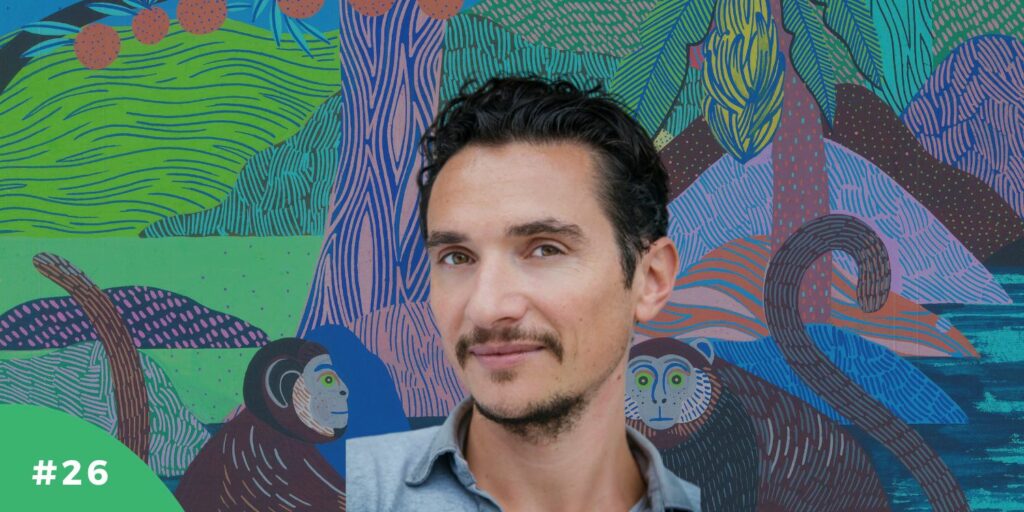Listen to this episode
What is the link between brain and gut? Between psychology and microbiota? How does what we eat play a role in our emotions? How can our eating be both a pleasure and a true factor of psychological balance?
This is what we will explore with our guest today.
The Guest: Guillaume Fond
I discovered Guillaume Fond in a documentary and liked his combination of gentleness, lucidity, and scientific rigor. He is a psychiatrist and researcher at the hospitals of Marseille. He teaches at the medical school and is a speaker and trainer.
He is the author of over a hundred articles published in psychiatric journals, and his work has been widely rewarded.
He published in 2022 “Eat Well to Stop Being Depressed,” by Odile Jacob editions.
My Questions
- How did you become interested in nutrition as a psychiatrist?
- Could you remind us of the definition of the microbiota, and tell us about the latest discoveries regarding the links between microbiota and brain?
- As a psychiatrist, do you observe an increase in depressions? What are the exact symptoms of depression? Are there other psychiatric illnesses linked to diet? (bipolar disorders, autism…)
- What are your nutritional recommendations to stop being depressed?
- More broadly, what are the good habits to adopt?
- Are there any lesser-known or even counterintuitive nutritional recommendations?
- Are there any interesting dietary supplements on this subject? (I saw the space you dedicate to omega-3s in your book…)
- What would be the foods, or even diets, to avoid?
- Is there a difference between men and women, due to hormones?
- Do you have specific advice for children? And for seniors?
- Could you share a few examples of patients whose transformation was particularly impressive?
Resources to explore further
- Eat Well to Stop Being Depressed, Guillaume Fond
- Guillaume’s YouTube channel
- I Make My Life a Great Project, Guillaume Fond
- An interview with Guillaume on psychonutrition, on Brain & Psycho



